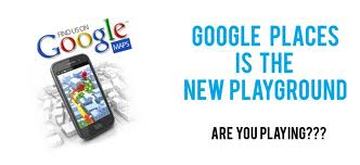There are certain instances in life that involves keen concentration and analysis of good and bad while choosing or selecting best one. Also, at times people regret afterwards with a fact that there was a chance when I could select the best. The best example is that after getting married few guys think that they could have wait and select the best one. When you had bought your first car there might be a thought arose in your mind that what if I had stopped for a while and in the same cost I could got a new modal. There are certain situations in life in which we float in a dilemma that is this perfect one or should I wait, is this the best section or do I look for something else. While reading my post you might be thinking that is this the right blog where I can get what I need or do I move to some other blog. It is a natural phenomenon so not to focus more on this and let’s move on to the topic now.

Selecting a perfect set of key phrases at the very beginning of your SEO campaign is a terrifying act which decides the dynamics of success of your campaign. The keywords that you choose to work on at the beginning and spend (waste) time and energy ranking for had better deliver the kind of qualified traffic you need on the landing pages of your choice — or else.
There are few moves while doing SEO which may take you down. If you find that you are getting ranks for the keywords you have chosen initially, and you are still not seeing expected visits/traffic things are looking down. If you are getting good visits/traffic for the website but still no sales or those visits are not converting things are looking down. This situation is really bad for everyone involved in the campaign as things are not working out. One possible reason for all this mess is keyword selection. The worst thing about keyword analysis is that you have this list and end up using it over 3-6 months and every time you look at it you get confused. Few questions suddenly dwell in your mind like, is this list of keywords actually working? Do I need to change it now or wait for someone to point out? OMG I had not appended location in the phrases? Are these phrases too specific to drive a decent traffic? Please god help me, can I change these now? and the answer to that last question is always: NO. Slight changes are fine at this stage, but once you have initiated the process that is focused around a core set of keywords, deviating from your path will lead to disappointment for sure.
I know many of us are facing such situation or faced in past so, in order to recover or to improve keyword selection process I have worked on few tips and tricks worth considering while doing research. Have a look below on such points; these might help you as these helped me.
There are few moves while doing SEO which may take you down. If you find that you are getting ranks for the keywords you have chosen initially, and you are still not seeing expected visits/traffic things are looking down. If you are getting good visits/traffic for the website but still no sales or those visits are not converting things are looking down. This situation is really bad for everyone involved in the campaign as things are not working out. One possible reason for all this mess is keyword selection. The worst thing about keyword analysis is that you have this list and end up using it over 3-6 months and every time you look at it you get confused. Few questions suddenly dwell in your mind like, is this list of keywords actually working? Do I need to change it now or wait for someone to point out? OMG I had not appended location in the phrases? Are these phrases too specific to drive a decent traffic? Please god help me, can I change these now? and the answer to that last question is always: NO. Slight changes are fine at this stage, but once you have initiated the process that is focused around a core set of keywords, deviating from your path will lead to disappointment for sure.
I know many of us are facing such situation or faced in past so, in order to recover or to improve keyword selection process I have worked on few tips and tricks worth considering while doing research. Have a look below on such points; these might help you as these helped me.
Look for the Relevancy
The relevancy of the keyword with the business or website you are working on is the MOST IMPORTANT factor to consider while researching. I know all of us already about this but I found it worth adding as it is the basis of his research. It is the most basic factor of getting 0 conversions instead of getting great ranks. You are not offering what you are showing to people. So be aware. Even if it means sacrificing search volume, make sure the keywords you’re trying to rank a specific page for match the content on that page.
Searches of the words you are selecting
It is an obvious fact that if a word does not have any searches, it clearly states that no one is searching for that. It is vitally important that you research search volume and make sure your keyword choices will drive traffic. So, now it’s the time to work out. If I didn’t have any knowledge of internet marketing or SEO and if I have a website that sells shoes, I would like to rank on first position for the word shoes. But as I know I work in the field of SEO so I am aware of the fact that ranking great for the word shoes is like doing suicide. I will not at all suggest working on such a generic and difficult keyword no matter how much searches it has or will get great amount of traffic for the website in future. This can be explained logically also that working on such a generic keyword is not at all worthy in terms of conversions. A person searching for the word shoes will not actually searching to buy. This user is just surfing websites. So if you think you are ranking great for such a generic word and not getting any conversions, it is clear that you are going in a wrong way. A person searching with an intention to buy will not search with a word shoes. That user will search with some combination of words like cheap shoes for jogging, shoes for wedding, etc. So, it is a suggestion to not to go completely with searches and give your research a logical move to get the best. Go for something which people will intend to search. Feel yourself as an end user.
Analyze the competition
We are always in search of the competition and want to work more efficiently and effectively as our competitors are doing. Same goes with keyword research also. Always look and analyze your competition for the keyword you are planning to work. The best way to find out who is ranking for keywords of your choice is by doing a Google search for them with personalization turned off and seeing what crops up. This is the easiest and free of cost method to see your competition. If you think that the websites ranking for a particular word can be beaten up with a certain amount of time and work, select that word otherwise move to some other keyword as it will not be beneficial to spend your resources on highly competitive words.
Return on investment for a keyword
Ranking well for keywords is not at all enough in present scenario. The days are history now when you achieve great ranks for few key phrases with little work and move proudly saying “Look my website is visible when you put this word in search bar of Google”. All of us want results now, not in terms of ranks but a win/win situation is required. A website owner want to sale the products not just get ranks. For this, your keyword selection must be ROI centric and focus on sales. So, before choosing a set of keywords always ask yourself that Is the keyword I selected is valuable for business? Will the traffic through these words result in the conversion you want on the page you optimized? From my point of view, traffic from long tail keywords converts at a substantially higher rate than traffic from short tale keywords. So, it will be your call in the end to select ROI based key phrases for the website you are working on.
Intention of the keyword selection
It is in your hands to fetch the traffic for your website by targeting a particular set of key phrases. For an Ecommerce website the intention will be to sale the products, no doubt in that. So, for getting potential visits for a website and getting it converted the best practice is to choose the keywords with an intention to fetch actual traffic. And for this as stated above, look out for the phrases which are not completely generic and specific to the product. For promotional websites or websites that provides some sort of information it is suggested to go for generic key phrases and specific to the website.
Always remember at the end of the day traffic is like a rocket that will be launched in a proper way otherwise it may harm your entire process.
By Anurag Sharma
The relevancy of the keyword with the business or website you are working on is the MOST IMPORTANT factor to consider while researching. I know all of us already about this but I found it worth adding as it is the basis of his research. It is the most basic factor of getting 0 conversions instead of getting great ranks. You are not offering what you are showing to people. So be aware. Even if it means sacrificing search volume, make sure the keywords you’re trying to rank a specific page for match the content on that page.
Searches of the words you are selecting
It is an obvious fact that if a word does not have any searches, it clearly states that no one is searching for that. It is vitally important that you research search volume and make sure your keyword choices will drive traffic. So, now it’s the time to work out. If I didn’t have any knowledge of internet marketing or SEO and if I have a website that sells shoes, I would like to rank on first position for the word shoes. But as I know I work in the field of SEO so I am aware of the fact that ranking great for the word shoes is like doing suicide. I will not at all suggest working on such a generic and difficult keyword no matter how much searches it has or will get great amount of traffic for the website in future. This can be explained logically also that working on such a generic keyword is not at all worthy in terms of conversions. A person searching for the word shoes will not actually searching to buy. This user is just surfing websites. So if you think you are ranking great for such a generic word and not getting any conversions, it is clear that you are going in a wrong way. A person searching with an intention to buy will not search with a word shoes. That user will search with some combination of words like cheap shoes for jogging, shoes for wedding, etc. So, it is a suggestion to not to go completely with searches and give your research a logical move to get the best. Go for something which people will intend to search. Feel yourself as an end user.
Analyze the competition
We are always in search of the competition and want to work more efficiently and effectively as our competitors are doing. Same goes with keyword research also. Always look and analyze your competition for the keyword you are planning to work. The best way to find out who is ranking for keywords of your choice is by doing a Google search for them with personalization turned off and seeing what crops up. This is the easiest and free of cost method to see your competition. If you think that the websites ranking for a particular word can be beaten up with a certain amount of time and work, select that word otherwise move to some other keyword as it will not be beneficial to spend your resources on highly competitive words.
Return on investment for a keyword
Ranking well for keywords is not at all enough in present scenario. The days are history now when you achieve great ranks for few key phrases with little work and move proudly saying “Look my website is visible when you put this word in search bar of Google”. All of us want results now, not in terms of ranks but a win/win situation is required. A website owner want to sale the products not just get ranks. For this, your keyword selection must be ROI centric and focus on sales. So, before choosing a set of keywords always ask yourself that Is the keyword I selected is valuable for business? Will the traffic through these words result in the conversion you want on the page you optimized? From my point of view, traffic from long tail keywords converts at a substantially higher rate than traffic from short tale keywords. So, it will be your call in the end to select ROI based key phrases for the website you are working on.
Intention of the keyword selection
It is in your hands to fetch the traffic for your website by targeting a particular set of key phrases. For an Ecommerce website the intention will be to sale the products, no doubt in that. So, for getting potential visits for a website and getting it converted the best practice is to choose the keywords with an intention to fetch actual traffic. And for this as stated above, look out for the phrases which are not completely generic and specific to the product. For promotional websites or websites that provides some sort of information it is suggested to go for generic key phrases and specific to the website.
Always remember at the end of the day traffic is like a rocket that will be launched in a proper way otherwise it may harm your entire process.
By Anurag Sharma



 RSS Feed
RSS Feed
